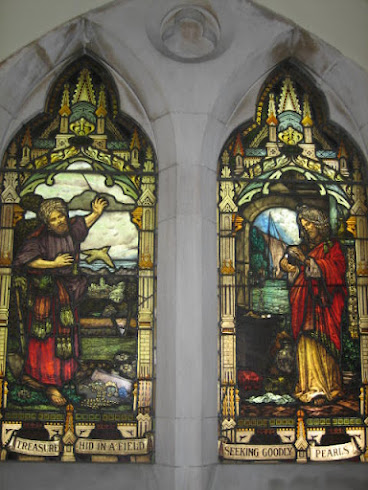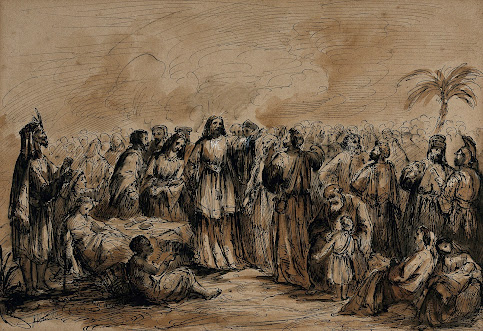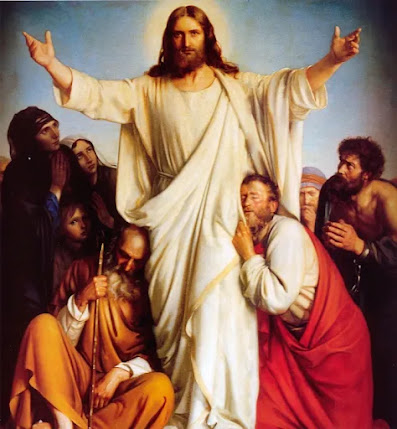The Kingdom of heaven is like a treasure buried in a field,
The Kingdom of heaven is not necessarily found by all. It is hidden in such a way that only those who are looking discover it. One must seek in order to find. It is entirely possible to look at the world in which the Kingdom is present and operative and see nothing of value. This was obviously the perspective of the Pharisees and Sadducees. But it is also possible to look at that same field and discover the Kingdom of God at work. This was the response of the disciples of Jesus. All humans have a hunger to find this treasure. But some have deadened that hope or sated it with inadequate substitutes. Many indeed have stopped looking and stopped hoping. This isn't all that surprising since human efforts at finding the treasure often meet with disappointment. We really need divine guidance, something like a spiritual metal detector, to hone in on the treasure. Only by a revelation from God are we likely to realize one particular spot in the field is different from a million other spots of similar appearance.
which a person finds and hides again,
and out of joy goes and sells all that he has and buys that field.
Why did the person hide the treasure again? It was not to prevent others from finding it so much as to ensure he himself didn't lose it. It was too precious to leave it to chance that it would still be there once one had all the resources necessary to make the purchase. Hiding it again was his way of keeping it protected, of respecting the true value inherent in the treasure. He wasn't in a position right away to take it and run. The treasure required a price to be paid, and it wasn't to be had cheaply. Since he would need to offer all that had for the treasure he couldn't risk that treasure being used or exchanged as a means to some further goal, which might have happened if it was not hidden. He knew that to be able to receive the treasure at all, even in exchange for all that he had, was a deal to good to pass up.
Again, the Kingdom of heaven is like a merchant
searching for fine pearls.
When he finds a pearl of great price,
he goes and sells all that he has and buys it.
The merchant was looking for something special. He wasn't content with pearls of merely average value. He knew that if he looked carefully enough he would eventually discover one whose value surpassed all others. He showed patience and discernment as he waited, not trading what he had for lesser things. Most of us would perhaps be inclined to jump at the first shiny sphere that came to our attention. But not all that glitters is gold, and not every pearl is of the same value. Indeed, though pearls might be of great value, one so great as to be worthy of all that we have and all that we are would require a special insight to recognize. It would in fact only be possible as a result of divine revelation. But we see that the merchant, by his posture of searching, was ready and waiting to cooperate with that revelation.
Have we found the true treasure of the Kingdom of heaven? If not, are we still looking, or have we instead given up or accepted substitutes? And if we claim to have found it, does it really hold the place in our lives that something of such inestimable value should hold? It is one thing to claim to have stored up treasure in heaven. It is another to actually live in freedom from the things of this world because that claim is true. It's easy to make statements or professions, to others, and even to ourselves. But to actually buy the treasure or to buy the pearl requires the aid of grace. This is not meant to be a one time event after which we set the treasure on a shelf, forget about it, and go back to our worldly pursuits. If we do not continue to value the treasure we may ultimately not continue to possess it. And so the grace we need at the beginning we also need the whole way through, the grace to surrender ourselves, and to receive what Jesus desires to give us as our greatest treasure: himself.

.jpg)











